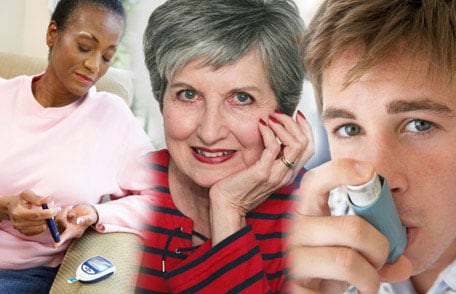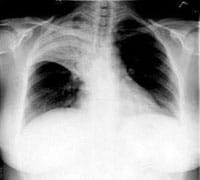Pneumonia Can Be Prevented—Vaccines Can Help | Features | CDC
 Pneumonia, an infection of the lungs, needlessly affects millions of people worldwide each year. Pneumonia infections can often be prevented and can usually be treated.
Pneumonia, an infection of the lungs, needlessly affects millions of people worldwide each year. Pneumonia infections can often be prevented and can usually be treated.
Globally, pneumonia kills nearly 1 million children younger than 5 years of age each year. This is greater than the number of deaths from any infectious disease, such as HIV infection, malaria or tuberculosis.
Pneumonia isn't just a public health issue in developing countries though. Each year in the United States, about 1 million people have to seek care in a hospital due to pneumonia, and about 50,000 people die from the disease. Most of the people affected by pneumonia in the United States are adults.
Many of these deaths—both globally and in the United States—could be prevented with vaccines and appropriate treatment (like antibiotics and antivirals).
Pneumococcal Recommendations for Older Adults
CDC recommends 2 pneumococcal vaccines for adults 65 years or older.
- You should receive a dose of the pneumococcal conjugate vaccine (PCV13) first, followed at least one year later by a dose of the pneumococcal polysaccharide vaccine (PPSV23).
- If you've already received any doses of PPSV23, the dose of PCV13 should be given at least 1 year after receipt of the most recent PPSV23 dose.
- If you've already received a dose of PCV13 at a younger age, another dose is not recommended.
Lower Your Risk with Vaccines
In the United States, there are vaccines that help prevent infection by some of the bacteria and viruses that can cause pneumonia:
- Haemophilus influenzae type b (Hib)
- Influenza (flu)
- Measles
- Pertussis (whooping cough)
- Pneumococcus
- Varicella (chickenpox)
These vaccines are safe, but side effects can occur. Most side effects are mild or moderate, meaning they do not affect daily activities. See the vaccine information statements for each vaccine to learn more about the most common side effects.
Protect Your Health with These Healthy Living Practices
Try to stay away from sick people. If you are sick, stay away from others as much as possible to keep from getting them sick. You can also help prevent respiratory infections by:
- Washing your hands regularly
- Cleaning surfaces that are touched a lot
- Coughing or sneezing into a tissue or into your elbow or sleeve
- Limiting contact with cigarette smoke
- Treating and preventing conditions like diabetes

Chest x-ray of an adult patient with pneumonia.
What Is Pneumonia?
Pneumonia is an infection of the lungs that can cause mild to severe illness in people of all ages. Common signs of pneumonia can include cough, fever, and trouble breathing.
Who Is At Risk for Pneumonia?
Certain people are more likely to become ill with pneumonia:
- Adults 65 years or older
- Children younger than 5 years old
- People who have underlying medical conditions (like asthma, diabetes or heart disease)
- People who smoke cigarettes
Encourage friends and loved ones with certain health conditions, like diabetes and asthma, to get vaccinated.
Causes and Types of Pneumonia
Pneumonia can be caused by viruses, bacteria, and fungi. In the United States, common causes of viral pneumonia are influenza and respiratory syncytial virus (RSV), and a common cause of bacterial pneumonia is Streptococcus pneumoniae (pneumococcus). However, clinicians are not always able to find out which germ caused someone to get sick with pneumonia.
When someone develops pneumonia in the community (not in a hospital), it's called community-acquired pneumonia. Pneumonia developed during or following a stay in a healthcare facility (like hospitals, long-term care facilities, and dialysis centers) is called healthcare-associated pneumonia, which includes hospital-acquired pneumonia and ventilator-associated pneumonia. The bacteria and viruses that most commonly cause pneumonia in the community are different from those in healthcare settings.